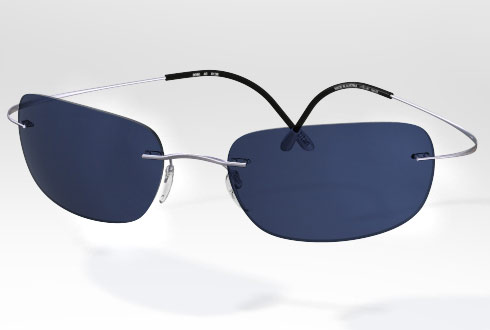
Sunglasses in Space
Special protection is required for space travel because the sunlight is far more intense and harmful than on Earth, where it is always filtered through the atmosphere. With the earth’s outer shield, our planet is protected from 98.7% of the sun’s UV rays, yet the small amount that makes it through can still be very damaging. Now imagine direct sunlight without the protection of the ozone. That’s the kind of harmful light that astronauts have to deal with while floating in outer space — no protection from the earth, only undiluted sunlight directly from the fiery star itself.
Within the spacecraft, astronauts wear sunglasses with darker lenses and a thin protective gold coating. During space walks, the visor of the astronauts’ helmets, which also has a thin gold coating for extra protection, functions as strong sunglasses. Frames for Space Until the 1990s, NASA only provided the standard Aviator sunglasses for astronauts.
The Austrian sunglasses company Silhouette started making sunglasses that were tailor-made for astronauts in the mid 90s, called the Voyager line, with special lenses that reduced light transmission. They furthered the technology in 2000 by inventing a new frame-style that incorporated a screwless, hingeless frame called Titanium Minimal Art. This frame’s purpose is to stay secured to the astronauts face in zero-gravity, with or without a space helmet on. Without hinges or screws, astronauts don’t take the risk of having any small parts come loose inside the helmet. Silhouette has been the standard eyewear for NASA ever since, and they have continuously collaborated with NASA optometrists in the creation of space eyewear.




